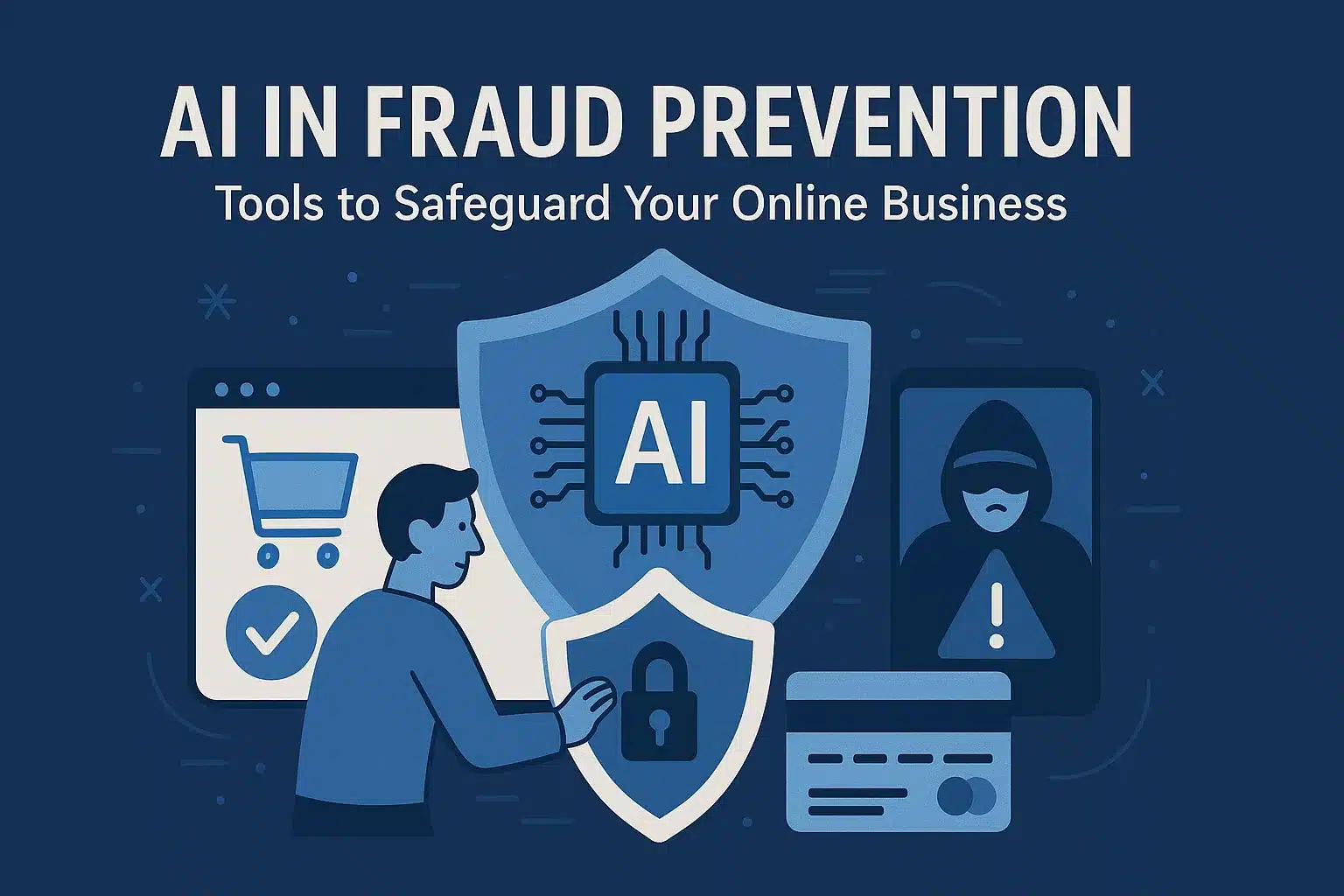Business Ethics In 2025: Latest Trends, Need, Challenges and Online Training Courses
Maintaining ethical standards is not as hard as finding a needle in the haystack—it’s just hyped up that way. Although we agree that rapid technological advancements, globalization, and shifting societal expectations have made business ethics hard to follow, it’s not impossible to stick by them. I’m sorry to burst your bubble, but even if you think hard and try eliminating them, you can just not.
This blog discusses the latest trends and challenges in business ethics with an eye to unparalleled ethical predicaments for organizations that require creative solutions.
Understanding Business Ethics
To be on the same ground, it is very important to ask a basic question: what are business ethics?
Business ethics refers to the rules and standards guiding conduct in business. From corporate governance and insider trading to bribery, discrimination, and corporate social responsibility, ethical principles cover these matters.
Adopting ethical business practices guarantees trust, fairness, and integrity, leading to a good reputation for the company and thus promoting long-term success.
Latest Trends In Business And Corporate Ethics
Let’s look at some of the latest trends in business and corporate ethics:
1. Increased Focus On Environmental, Social, And Governance (ESG) Criteria
One of the most significant trends in business ethics 2025 is the heightened emphasis on ESG criteria. Companies are now evaluated not only on their financial performance but also on their environmental impact, social responsibility, and governance practices. This shift reflects a growing recognition that sustainable and ethical practices are critical for long-term viability.
- Environmental Responsibility: Businesses are increasingly held accountable for their environmental footprint. It includes reducing carbon emissions, minimizing waste, and using sustainable materials.
- Social Responsibility: Companies are expected to contribute positively to society, which involves fair labor practices, diversity and inclusion, and community engagement.
- Governance: Strong corporate governance ensures transparency, accountability, and ethical decision-making.
2. Ethical AI And Data Privacy
With the proliferation of artificial intelligence (AI) and big data, ethical considerations surrounding privacy and data usage are paramount. Businesses must navigate the fine line between leveraging data for innovation and respecting individual privacy rights. The European Union’s General Data Protection Regulation (GDPR) and similar laws worldwide set stringent standards for data protection, but ethical companies go beyond mere compliance.
- Transparency: Clear communication about data collection and usage.
- Consent: Obtaining explicit consent from users before collecting data.
- Security: Implementing robust measures to protect data from breaches.
3. The Rise Of Ethical Investing
Investors are increasingly prioritizing ethical considerations in their investment decisions. Ethical investing involves selecting stocks and bonds based on companies’ adherence to ethical standards. This trend is driven by a growing awareness of social and environmental issues and the recognition that ethical companies are often more resilient and successful in the long run.
- Impact Investing: Direct funds towards companies with a positive social or environmental impact.
- Screening: Avoid investments in companies that engage in unethical practices, such as tobacco, weapons, or fossil fuels.
4. Enhanced Supply Chain Transparency
Global supply chains are complex, often involving multiple layers of subcontractors and suppliers. Ensuring ethical practices throughout the supply chain is a significant challenge. In 2025, there is a stronger push for transparency, with businesses taking active steps to monitor and improve ethical standards across their supply networks.
- Audits: Regular and thorough audits of suppliers to ensure compliance with ethical standards.
- Certifications: Seeking certifications like Fair Trade and Rainforest Alliance to demonstrate commitment to ethical practices.
- Collaboration: Working with suppliers to improve working conditions and environmental practices.
5. Discrimination and Harassment
An emerging trend in business ethics is the increasing focus on addressing discrimination and harassment in the workplace. Companies are under growing pressure to provide inclusive environments where all employees feel safe, respected, and valued. Similarly, the legal landscape is also evolving, and organizations must proactively implement policies to prevent misconduct and promote workplace equity.
- Workplace Equity: Businesses are expected to create fair opportunities for all employees and ensure that hiring, promotions, and compensation are free from bias. Many companies have adopted or are quickly adopting AI-driven hiring tools and bias-awareness training to reduce discrimination in recruitment and advancement.
- Harassment Prevention: With heightened awareness from movements like #MeToo, organizations are strengthening their anti-harassment policies. Most companies have now implemented zero-tolerance policies, conduct mandatory training, and establish clear reporting channels to protect employees.
- Legal and Ethical Compliance: Governments and regulatory bodies impose stricter workplace conduct laws, requiring companies to take proactive measures. To avoid legal repercussions, businesses must stay ahead by updating policies and ensuring compliance with evolving regulations.
Workplace Health and Safety
A safe and healthy workplace is a growing ethical priority for businesses because a safer working environment contributes to long term organizational success. Companies are adopting proactive measures to protect employees’ physical and mental well-being while complying with evolving safety regulations.
- Technology-Driven Safety: AI and wearable devices help predict hazards and monitor real-time health data to prevent workplace injuries.
- Mental Health Support: Businesses are expanding employee wellness programs to address stress, burnout, and overall mental well-being.
- Regulatory Compliance: Stricter laws require organizations to implement proactive safety measures and risk mitigation strategies.
Challenges In Business And Corporate Ethics
While the trends highlight progress, businesses also face numerous challenges in maintaining and enhancing ethical standards. Understanding these challenges is crucial for developing effective strategies.
1. Balancing Profitability With Ethical Practices
A perennial challenge in business ethics is balancing the pursuit of profit with the need to maintain ethical standards. Pressure to deliver short-term financial results can sometimes lead to unethical behavior, such as cutting corners on quality, engaging in deceptive marketing, or exploiting labor.
- Pressure from Investors: Investors often demand quick returns, which can push companies towards unethical shortcuts.
- Competitive Markets: In highly competitive markets, the temptation to engage in unethical practices to gain an edge can be strong.
2. Navigating Cultural Differences
In a globalized economy, businesses operate across diverse cultural landscapes. What is considered ethical in one country might not be seen the same way in another. Navigating these differences while maintaining a consistent ethical standard is a complex task.
- Cultural Sensitivity: Understanding and respecting cultural differences while upholding core ethical principles.
- Local Regulations: Complying with local laws and regulations that may differ from international standards.
3. Addressing Technological Disruptions
Technological advancements, while offering numerous benefits, also pose ethical challenges. AI, automation, and digital platforms have transformed business operations, but they also raise concerns about job displacement, privacy, and the digital divide.
- Job Displacement: Automation and AI can lead to job losses, raising ethical questions about the treatment of displaced workers.
- Privacy Concerns: The use of AI and big data can infringe on individual privacy if not managed ethically.
- Digital Divide: Ensuring equitable access to technology and digital resources is an ongoing ethical concern.
4. Combating Corruption And Bribery
Corruption and bribery remain pervasive challenges in many parts of the world. These unethical practices undermine trust, distort markets, and contribute to inequality. Businesses must actively work to prevent corruption within their operations and influence their industry to do the same.
- Anti-Corruption Policies: Implementing strict anti-corruption policies and practices.
- Training: Providing regular training for employees on how to recognize and avoid corrupt practices.
- Whistleblower Protection: Ensuring safe channels for employees to report unethical behavior.
Solutions To Enhance Business And Corporate Ethics
Given these challenges, what are the solutions to enhance business and corporate ethics in 2025? Here are some strategies that can help companies navigate the complex ethical landscape.
1. Embedding Ethical Culture
Creating an ethical culture within an organization is fundamental. It involves instilling ethical values at every company level and ensuring all employees understand and adhere to these principles.
- Leadership Commitment: Ethical behavior must start at the top. Leaders should model ethical conduct and demonstrate a commitment to ethical principles.
- Code of Ethics: Developing a clear and comprehensive code of ethics that outlines expected behaviors and provides guidance on ethical dilemmas.
- Training Programs: Regular training sessions on ethical issues to ensure that all employees are aware of the company’s ethical standards.
2. Leveraging Technology For Ethical Practices
Technology can be a powerful ally in promoting ethical practices. From AI-driven compliance tools to blockchain for supply chain transparency, innovative technologies can help businesses maintain high ethical standards.
- AI for Compliance: Using AI to monitor compliance with ethical standards and detect potential violations.
- Blockchain for Transparency: Implementing blockchain technology to enhance transparency and traceability in supply chains.
- Data Analytics: Leveraging data analytics to identify and address ethical risks proactively.
3. Engaging Stakeholders
Engaging stakeholders, including employees, customers, investors, and communities, is essential for fostering an ethical business environment. Transparent and open communication can build trust and ensure that stakeholders’ concerns are addressed.
- Stakeholder Involvement: Involving stakeholders in decision-making processes, especially on issues that impact them directly.
- Transparency Reports: Regularly publishing reports on the company’s ethical practices and performance.
- Feedback Mechanisms: Establishing channels for stakeholders to provide feedback and report ethical concerns.
4. Continuous Improvement And Adaptation
Ethical business practices require continuous improvement and adaptation. The ethical landscape is dynamic, and businesses must remain vigilant and proactive in addressing new challenges and opportunities.
- Regular Audits: Conducting regular audits of ethical practices and policies to identify areas for improvement.
- Benchmarking: Comparing the company’s ethical performance with industry standards and best practices.
- Innovation: Encouraging innovation in ethical practices, such as developing new methods for reducing environmental impact or enhancing social responsibility.
The Need for Business Ethics Training
As businesses grapple with the complex ethical challenges of 2025, the importance of business ethics training becomes increasingly evident.
According to a report by the Ethics & Compliance Initiative, only 33% of workers are employed in companies with comprehensive ethics training programs.
Effective ethics training programs are essential for ensuring employees understand and adhere to the company’s ethical standards. This training helps employees navigate ethical dilemmas, reinforces the company’s commitment to ethical behavior, and fosters a culture of integrity. Key components of successful ethics training programs include:
- Regular Training Sessions: Ongoing training to keep employees updated on new ethical standards and regulations.
- Scenario-Based Learning: Practical examples and case studies to help employees apply ethical principles in real-world situations.
- Leadership Involvement: Active participation from top management to demonstrate the importance of ethics to the organization.
- Assessment and Feedback: Evaluating the effectiveness of training programs and incorporating feedback for continuous improvement.
Robust ethics training helps businesses reduce risks, enhance their reputation, and build a loyal, ethical workforce. It will all result in long-term success and resilience within a highly scrutinized marketplace.
Take Online Business Ethics Training from Coggno
Coggno offers a comprehensive solution through its online business ethics training courses for businesses seeking to implement or enhance their ethics training programs. Coggno’s platform provides accessible, high-quality training materials designed to equip employees with the knowledge and skills necessary to uphold ethical standards in the workplace.
Key benefits of Coggno’s online business ethics training include:
- Flexibility: Employees can access training materials at their convenience, making integrating ethics training into busy schedules easier.
- Comprehensive Content: Courses cover various topics, from fundamental ethical principles to specific issues like data privacy, corruption, and corporate social responsibility.
- Interactive Learning: Engaging, scenario-based modules help employees understand and apply ethical concepts in practical situations.
- Expert Instruction: Courses are developed by industry experts, ensuring the training is up-to-date and relevant to current business challenges.
- Scalability: Suitable for organizations of all sizes, from small businesses to large corporations, with the ability to tailor training to specific needs.
FAQs On Business Ethics Training
Q1: What is business ethics training, and why is it essential for companies?
Business ethics training involves educating employees on the ethical standards and practices of a company. It is essential for companies because it helps prevent unethical behavior, promotes a positive work culture, and ensures compliance with laws and regulations.
Q2: How often should employees undergo business ethics training?
Employees should undergo business ethics training at least annually, with additional sessions, whenever there are updates to ethical policies or significant changes in the company’s operations or industry regulations.
Q3: How can online business ethics training be beneficial for remote or global teams?
Online business ethics training is beneficial for remote or global teams as it provides flexible access, consistent content delivery, and the ability to track and measure employee progress and understanding across diverse locations.
Q4: What is the difference between business and corporate ethics training?
Business ethics training focuses on individual behavior and decision-making within a company, while corporate ethics training encompasses broader issues like corporate governance, ethical leadership, and organizational ethical culture.
Q6: How does business and corporate ethics training impact a company’s reputation?
Business and corporate ethics training positively impacts a company’s reputation by fostering a culture of integrity and trust, which can attract customers, investors, and top talent who value ethical business practices.
Q7: What role do executives play in business and corporate ethics training?
Executives play a crucial role in business and corporate ethics training by setting the tone at the top, participating in training sessions, and demonstrating a commitment to ethical principles through their actions and decisions.
Bottom Line: A Path Forward For Business Ethics In 2025
Business ethics are constantly changing with the growing complexity of the business environment. Companies struggle to ensure profitability while dealing with many ethical issues in addition to the other business issues that accompany them.
The way ahead for corporate morality will require joint efforts from all parties concerned. By facing the above challenges head-on and adopting solutions cited in this blog post, companies will become catalysts for promoting a more just, fairer and sustainable business world.


















